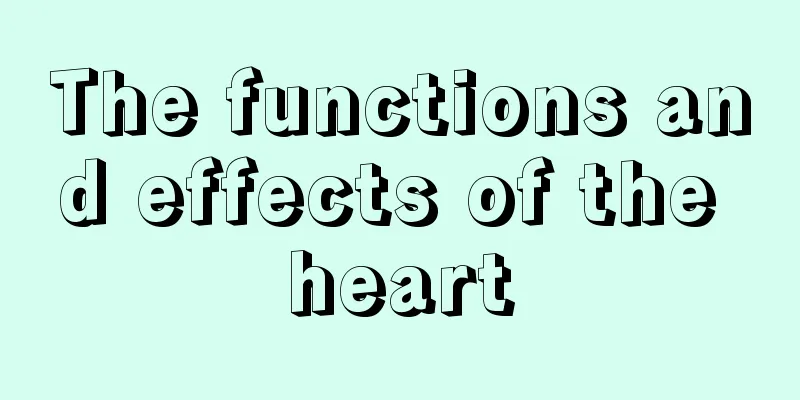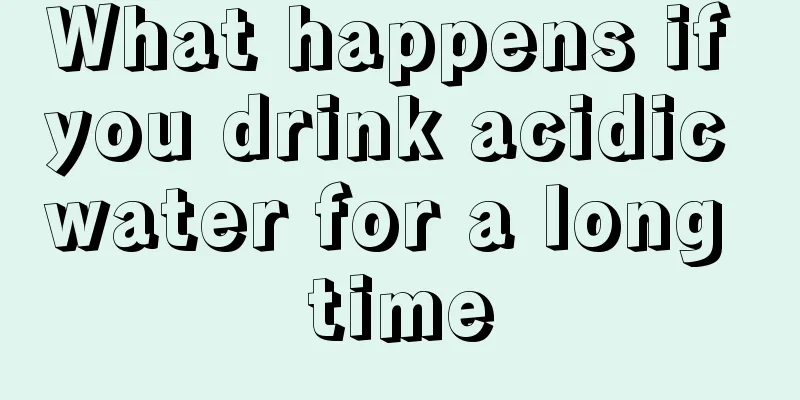The functions and effects of the heart

|
The heart is the most important organ in the human body. Blood circulates through the heart to various parts of the body every day. If the heart stops beating, the body's blood supply system will stop, and brain death will follow, so we must protect our heart. The heart supplies oxygen and nutrients needed by the human body by pushing blood circulation, while also taking away metabolic products. Many people have heart disease since birth, and such people should be more careful not to stimulate their hearts. ①The heart is one of the most important organs in the body of vertebrates. Its main function is to provide pressure for blood flow and circulate blood to all parts of the body. The human heart is located in the lower left middle of the chest cavity. It is about the size of a fist and weighs about 250 grams. Women's hearts are generally smaller and lighter than men's. The human heart is shaped like a peach and is located above the diaphragm, between the two lungs and slightly to the left. ②The function of the heart is to promote blood flow, provide sufficient blood flow to organs and tissues to supply oxygen and various nutrients, and take away the end products of metabolism (such as carbon dioxide, uric acid, etc.) so that cells maintain normal metabolism and function. Various endocrine hormones and some other humoral factors in the body also need to be transported to target cells through blood circulation to achieve the body's humoral regulation and maintain the relative constancy of the body's internal environment. In addition, the realization of the blood's defense function and the relatively constant regulation of body temperature also depend on the continuous circulation of blood in the blood vessels, and the circulation of blood is achieved due to the action of the heart "pump". ③The main function of the heart is to pump blood to maintain the body's metabolism. Moreover, the amount and speed of blood pumped can change at any time due to changes in the functional state of the human body. In addition, it is worth mentioning that in addition to being a power organ, the heart is also an endocrine organ. Cardiomyocytes can also synthesize and secrete the peptide hormone atrial natriuretic peptide. Its main function is to relax vascular smooth muscles and promote the excretion of sodium and water by the kidneys. It can also inhibit the production of other hormones, such as renin, aldosterone and vasopressin. It is an important peptide hormone in the human body. |
<<: How to remove rust from a pot
>>: The efficacy and function of young mulberry leaves
Recommend
Can nasopharyngeal cancer cause swollen gums?
Nasopharyngeal carcinoma can also cause swollen g...
Symptoms of esophageal erosion
Esophageal erosion refers to a phenomenon in whic...
Drugs for mature ovarian teratoma
Teratoma is a gynecological tumor disease that is...
To which parts of the body do liver cancer cells easily metastasize
Liver cancer is the second most common cancer dis...
Why do girls get breast cancer
The occurrence of breast cancer in women is affec...
What would you eat to feel better after vomiting after getting drunk
Nowadays, people's lifestyles are becoming mo...
What to do if you have wrinkles? What is the most effective way to remove wrinkles?
I believe everyone knows the great impact of wrin...
Injection phobia
Injections are very common in normal times. Altho...
What is the quadruple therapy for gastric disease
Modern people are under great pressure in life, w...
Can bird's nest lower blood sugar?
People with diabetes usually don't dare to ea...
How to fall asleep when others snore
Whether living in a group or sleeping together as...
Which is better, the green radish or the drug-absorbing grass?
Most people like to put some green plants at home...
Can serum lower blood sugar?
Many of our friends often lose their composure wh...
There is always a dull pain on the left side of the head
Many people will say that they always have one pr...
How long does it take for salt water to kill bacteria
Most bacteria are harmful to human health. If the...









